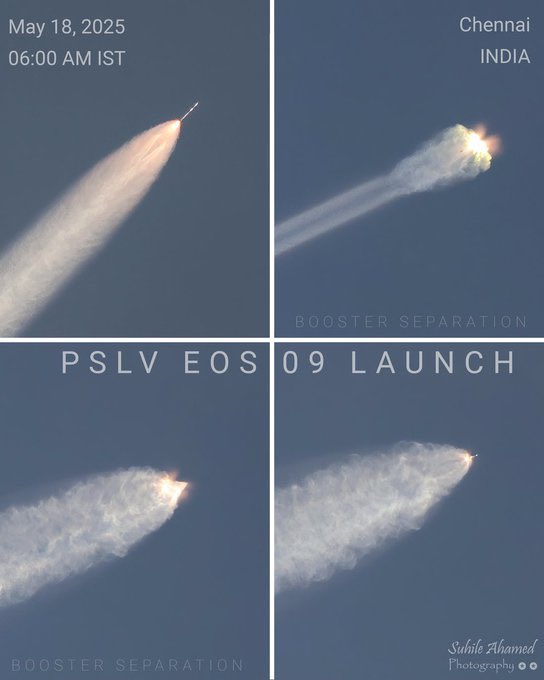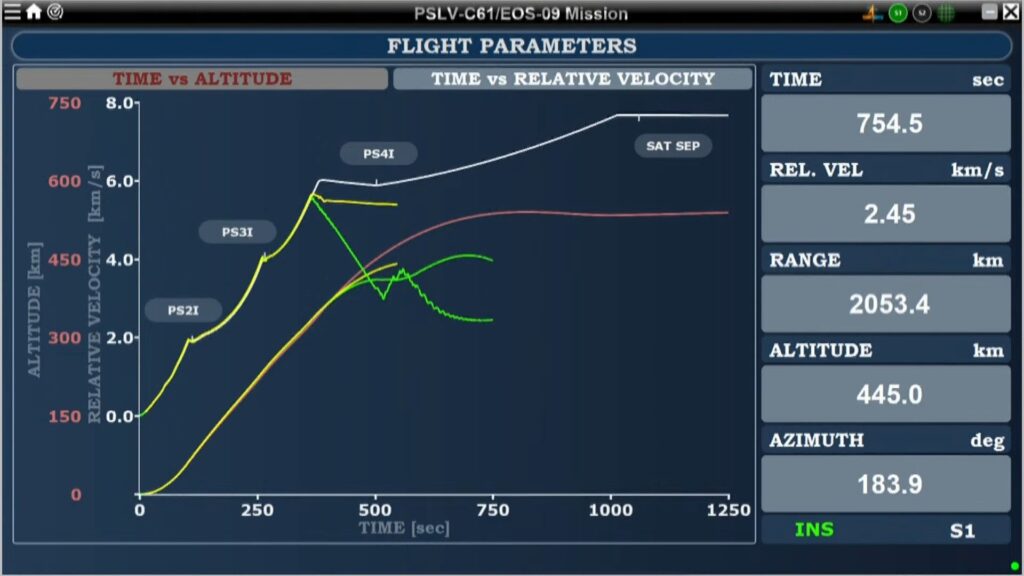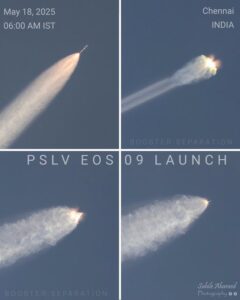ISRO’s PSLV-C61 Mission Fails: This is a pause not defeat says former Chairman S Somnath

Sriharikota, May 18, 2025 – The Indian Space Research Organisation (ISRO) faced a significant setback today as its Polar Satellite Launch Vehicle (PSLV-C61) failed to place the EOS-09 Earth observation satellite into orbit, ending a streak of 21 consecutive successful launches for the reliable workhorse rocket. This marks only the third failure in the PSLV’s 63 missions since its debut in 1993.

The 44.5-meter-tall PSLV-C61, launched at 5:59 a.m. IST from the Satish Dhawan Space Centre in Sriharikota, performed nominally through its first two stages. However, an anomaly in the third stage, attributed to a drop in chamber pressure in the solid rocket motor, caused the rocket to veer off course, preventing the satellite from reaching its intended 525 km sun-synchronous polar orbit. ISRO Chairman V. Narayanan confirmed the issue during a live broadcast, stating, “The first two stages performed as expected, but during the third stage, we observed less chamber pressure. The mission could not be accomplished.”
Following standard safety protocols, ISRO terminated the mission, destroying the rocket’s fourth stage and the 1,696 kg EOS-09 satellite, with debris expected to fall in safe, uninhabited zones. The EOS-09, equipped with C-band Synthetic Aperture Radar for all-weather surveillance, was intended to bolster India’s 52-satellite surveillance constellation, supporting applications in agriculture, disaster management, and national security.
This failure, the first for PSLV since the 2017 PSLV-C39 mission, which suffered a payload fairing separation issue, has prompted ISRO to initiate a detailed investigation. Preliminary telemetry suggests the third-stage motor, powered by hydroxyl-terminated polybutadiene (HTPB) propellant, underperformed approximately 203 seconds into the flight. ISRO’s internal failure analysis committee, alongside an external government panel, will probe the incident to identify the root cause.
Despite the setback, ISRO remains optimistic. “This is a pause, not a defeat,” said former ISRO Chairman S. Somanath, emphasizing the agency’s history of rapid recovery, often within six months. ISRO has four more PSLV launches scheduled for 2025, underscoring its commitment to advancing India’s space ambitions, including the Gaganyaan, Chandrayaan-5, and Mangalyaan missions.
The failure has sparked discussions within India’s space community. Pawan Kumar Chandana of Skyroot Aerospace noted, “Spaceflight is unforgiving, even for proven rockets like PSLV.” Social media reactions on X reflect a mix of disappointment and resilience, with users praising ISRO’s track record and expressing confidence in a swift comeback.
As ISRO analyzes telemetry data to pinpoint the cause, the global space community watches closely, recognizing the agency’s resilience in overcoming past challenges, such as the 1993 PSLV-D1 failure due to a software error and retro-rocket malfunction. This mission, ISRO’s 101st launch, underscores the complexities of space exploration and the determination to push forward.
Stay tuned for updates as ISRO investigates and prepares for its next steps.





